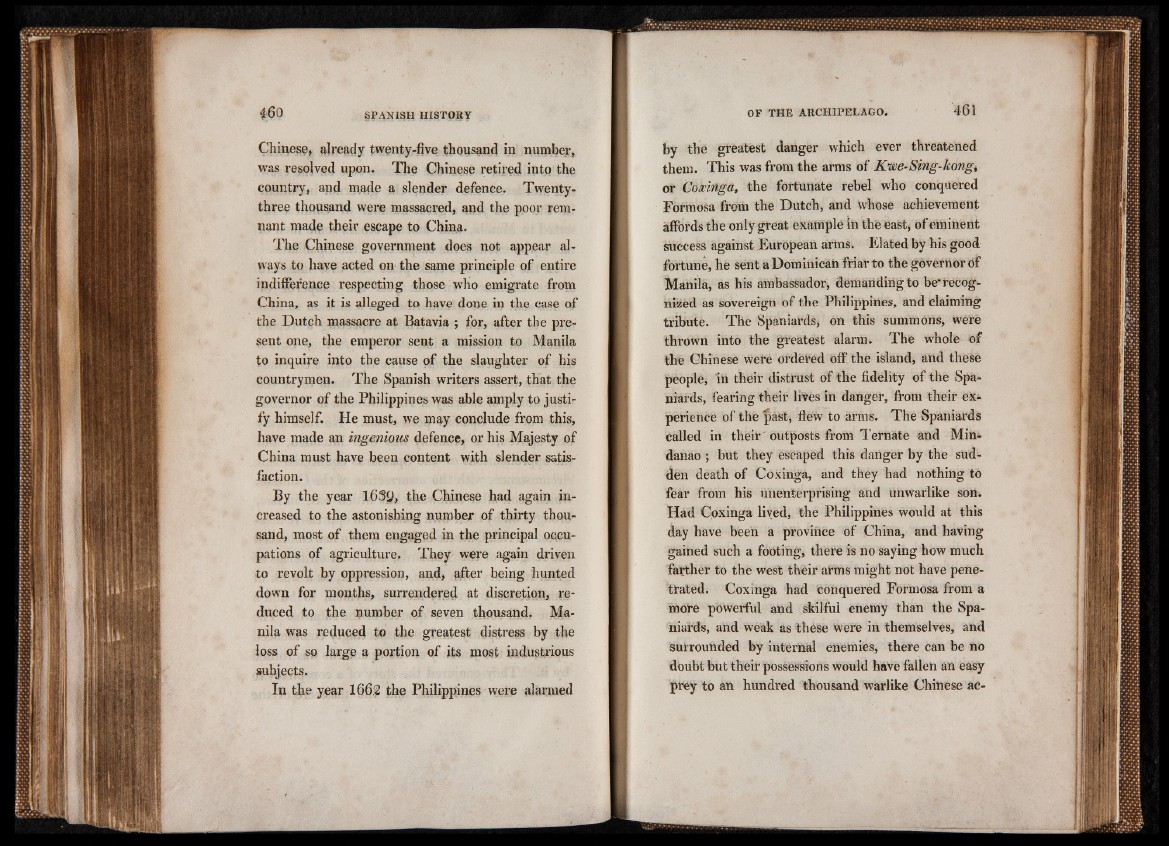
Chinese, already twenty-five thousand in number,
was resolved upon. The Chinese retired into the
country, and made a slender defence. Twenty-
three thousand were massacred, and the poor remnant
made their escape to China.
The Chinese government does not appear always
to have acted on the same principle of entire
indifference respecting those who emigrate from
China, as it is alleged to have done in the case of
the Dutch massacre at Batavia ; for, after the present
one, the emperor sent a mission to Manila
to inquire into the cause of the slaughter of his
countrymen. The Spanish writers assert, that the
governor of the Philippines was able amply to justify
himself. He must, we may conclude from this,
have made an ingenious defence, or his Majesty of
China must have been content with slender satisfaction.
i
By the year 1659, the Chinese had again increased
to the astonishing number of thirty thousand,
most of them engaged in the principal occupations
of agriculture. They were again driven
to revolt by oppression, and, Rjfter being hunted
down for months, surrendered at discretion, reduced
to the number of seven thousand, Manila
was reduced to the greatest distress by the
loss of so large a portion of its most industrious
subjects.
In the year 166? the Philippines were alarmed
by the greatest danger which ever threatened
them. This was from the arms of Ktsoe-Sing-hong,
or Coxinga, the fortunate rebel who conquered
Formosa from the Dutch, and whose achievement
affords the only great example in the east, of eminent
success against European arms, Elated by his good
fortune, he sent a Dominican friar to the governor of
Manila, as his ambassador, demanding to be* recognized
as sovereign of the Philippines, and claiming
tribute. The Spaniards, on this summons, were
thrown into the greatest alarm. The wrhole of
the Chinese were ordered off the island, and these
people, in their distrust of the fidelity of the Spaniards,
fearing their lives in danger, from their experience
of the past, flew to arms. The Spaniards
Called in their ' outposts from Ternâte and Mindanao
*, but they escaped this danger by the sudden
death of Coxinga, and they had nothing to
fear from his unenterprising and unwarlike son.
Had Coxinga liyed, the Philippines would at this
day have been a province of China, and having
gained such a footing, there is no saying how much
farther to the west their arms might not have penetrated.
Coxinga had Conquered Formosa from a
more powerful and skilfui enemy than the Spaniards,
and wréak as thèse Were in themselves, and
surrounded by internal enemies, there can be no
doubt but their possessions would have fallen an easy
phey to an hundred thousand warlike Chinese ac